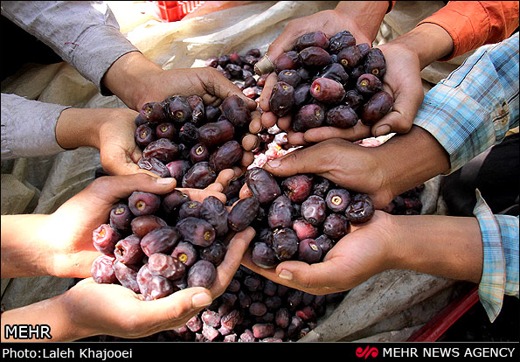On January 3, Foreign Minister Mohammad Javad Zarif, who was on a tour of Africa told journalists, “Some individuals don’t want sanctions to be lifted.” His comment drew different reactions in Iran. Apparently upset by Zarif, a principlist daily said the top diplomat has called “those who are opposed to flexibility in the face of America and the West” as a bunch pursuing personal interests.
Fararu, a website filed a report about the problems that Iranian exporters are wrestling with which sheds light on another fact: Beyond Iran’s borders, there are many profiteers who capitalize on the murky conditions created by sanctions to buy Iranian products in bulk to wrest control of the market from Iranian producers. They seek to make Iranian businessmen (read Iran’s economy) stay dependent on middlemen to sell their products even after the sanctions are lifted.
In such conditions, bitterness toward world powers which slapped crippling sanctions on the Iranian nation would persist even after the removal of sanctions. Mandela has said that certain things might be forgivable, but they are not forgettable. The following is a partial translation of the report:
By opting for wrong trade methods, some Iranian businessmen have put the reputation of Iranian products on the line. The problem has lingered so long that the issue of bulk exports of low- quality products has drawn criticism from many.
In some countries, it’s said that the Iranians offer their products in worn-out sacks and torn boxes to their customers and this issue has tarnished the reputation of Iranian products on international markets.
The remarks of Iranian traders are interesting too. They contend bulk exports have never been their preference, but to avoid paying value added tax, foreign customers prefer them. Foreign countries have levied heavy tariffs on imports of packed products. Besides, foreign hypermarkets are not willing to directly buy Iranian packed goods because of the sanctions.
Aside from numerous production obstacles, Iranian producers have more challenges on global markets, as a result of which substantial profits are channeled into the pockets of foreign traders on sales of Iranian products.
Iran’s saffron is exported to Spain and packed beautifully there before being resold to other countries with eight- to ten-fold profits.
Iran’s high-quality dates end up in the UAE and are sold to other countries as Arabic brands. Apples grown in Damavand [northeast of Tehran] gardens are cherry-picked and sold not in kilos but in numbers on Turkey’s market.
Based on stats by the Food and Agriculture Organization, palm groves around the world cover about 950,000 hectares of land, of which 250,000 is in Iran.
The very report identifies Iran as the biggest producer of dates in the world: 1 million tons a year. One kilo of Iran’s high-quality dates in bulk fetches less than $1, whereas one kilo of packed dates from Saudi Arabia, Egypt and Algeria is sold $5. As a result, the UAE is one of the biggest buyers of Iran’s dates.
Ahmad Mirhashemi, a board member of Khuzestan’s Nuts Producers and Exporters Union, has told the Islamic Students News Agency that Iran’s dates which are exported in bulk to Dubai and Turkey are later packed by those countries and sold to markets in France and Britain.
